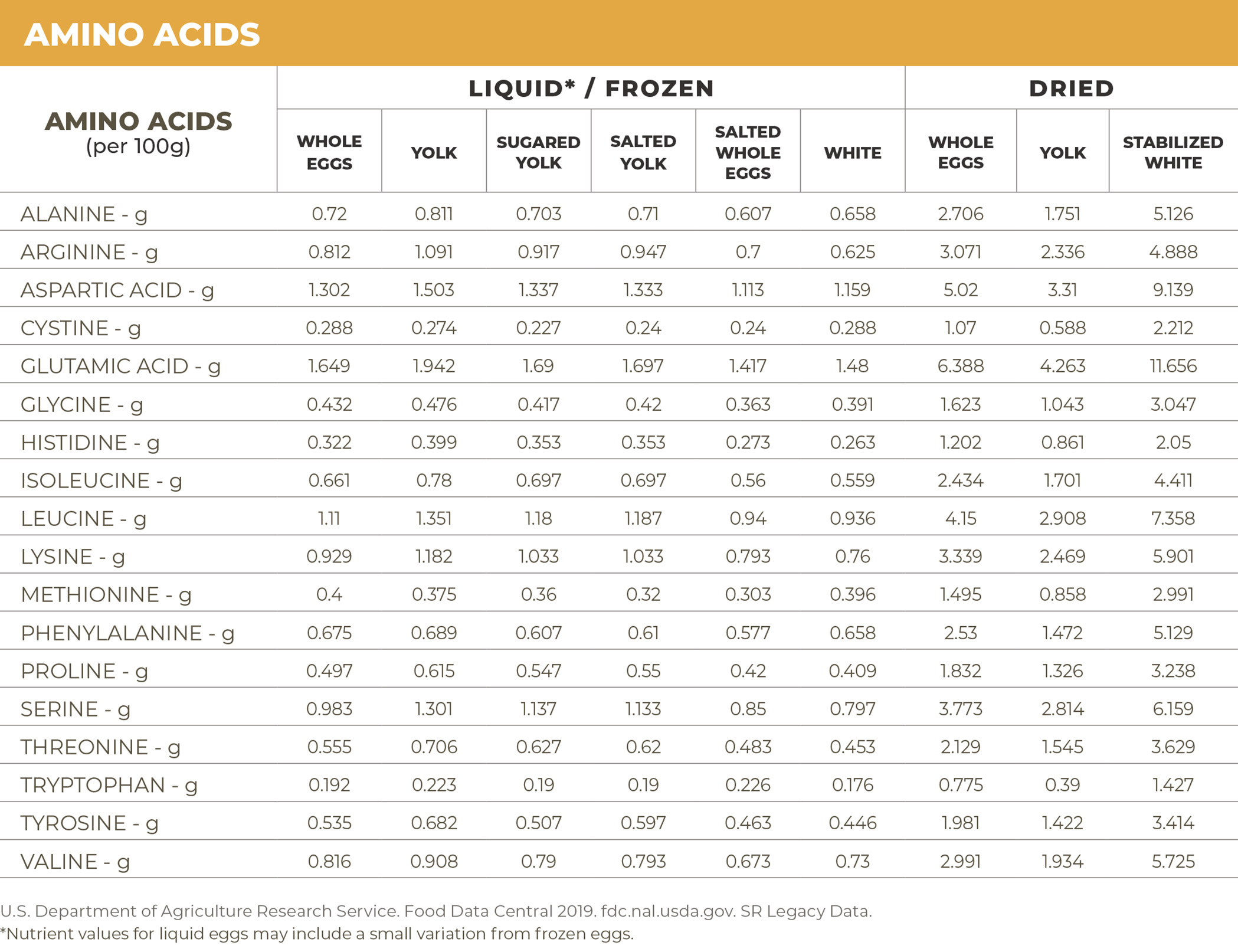Nutrient Composition Tables
Assayed Egg Ingredients
FACT: According to a study conducted by Food Processing magazine and the American Egg Board, food processors prefer real eggs over alternatives. They know eggs perform multiple functions in food product formulations and keep ingredient statements short and clean.
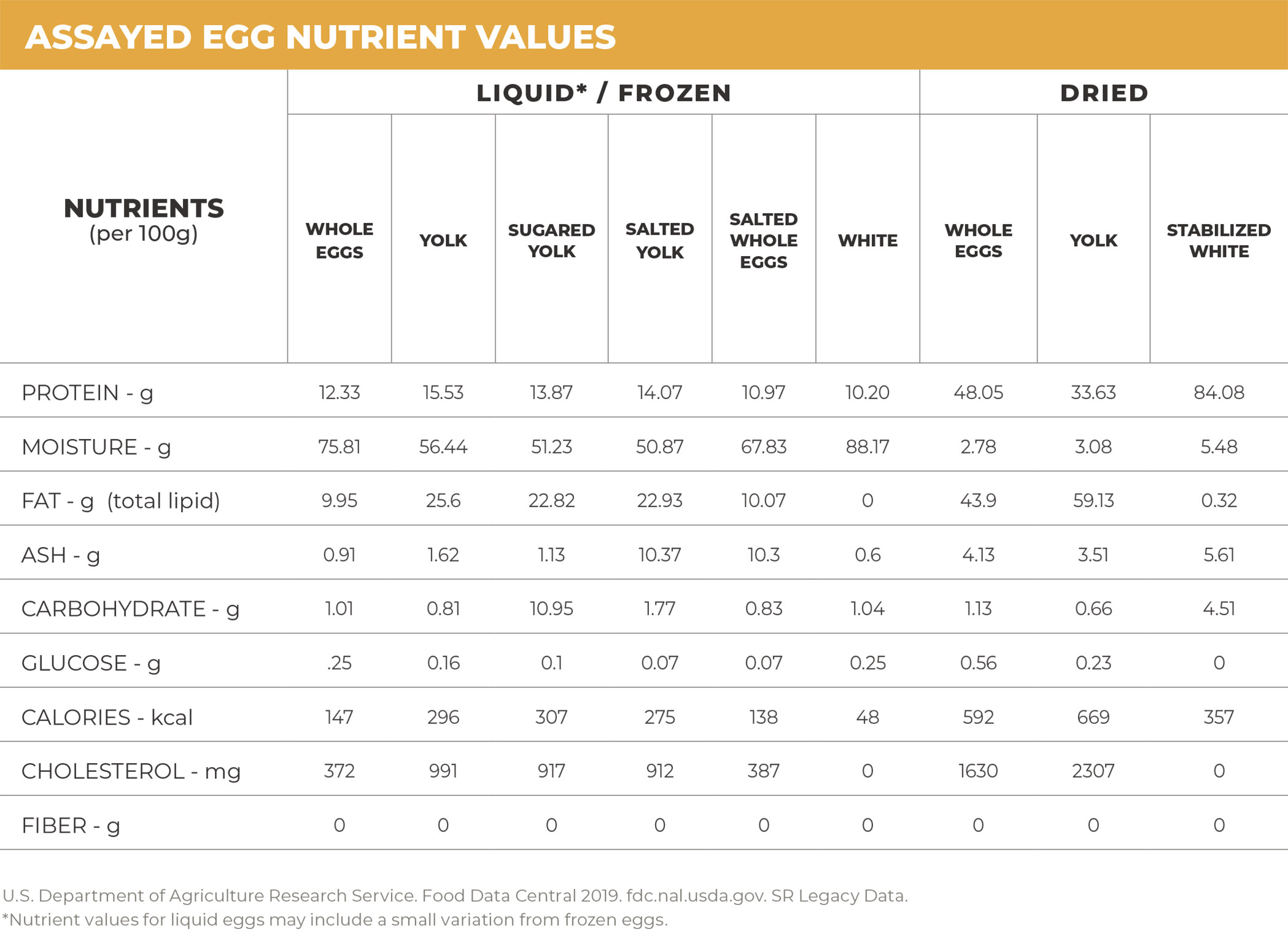
Egg Vitamins
FACT: Eggs have a high nutrient density because they provide excellent protein and a wide range of vitamins and minerals in proportion to their calorie count.
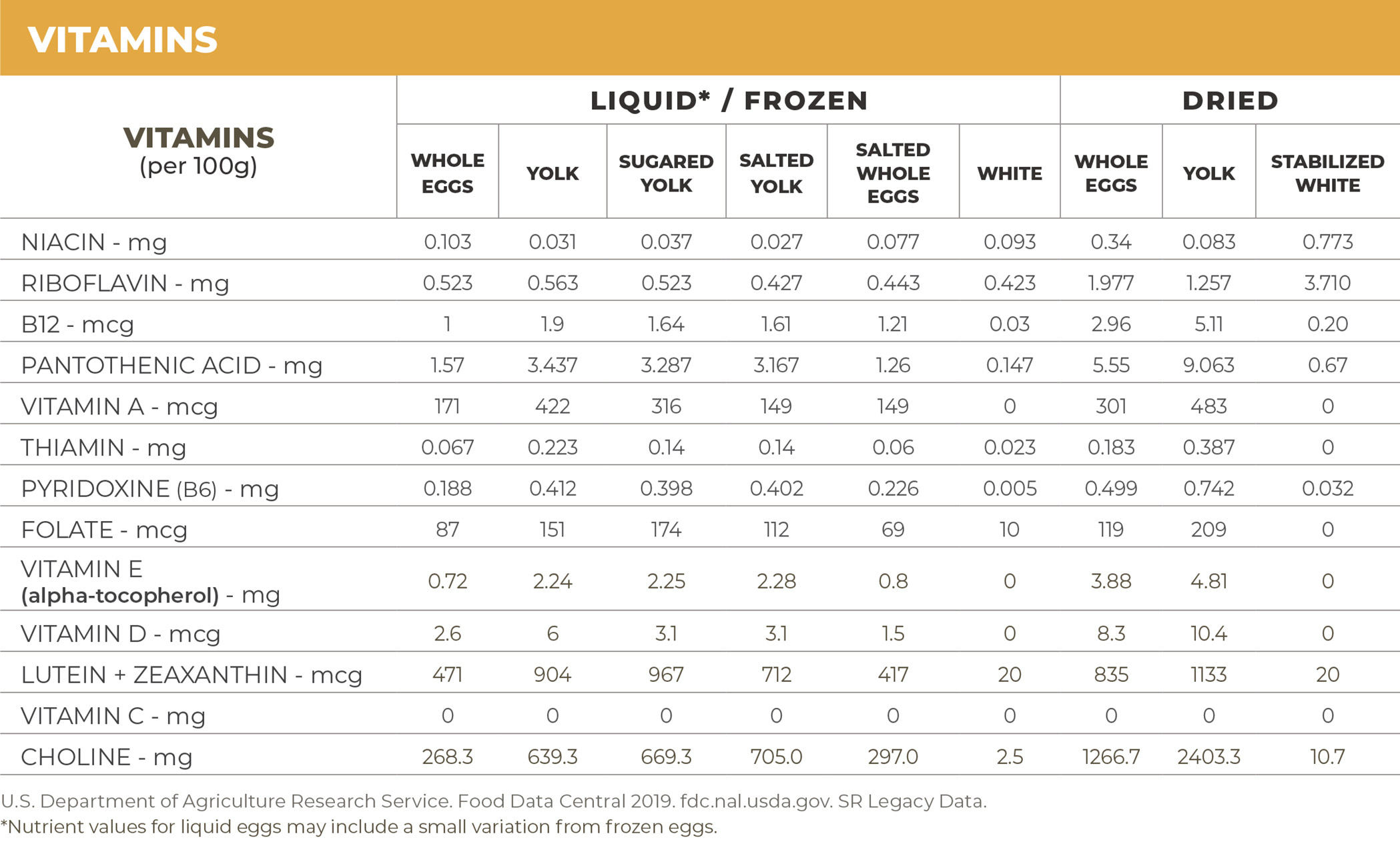
Egg Minerals
FACT: Many additional ingredients are required to substitute for the functionality of eggs in a recipe or formula. Contemporary consumers, however, are turned off by food labels displaying synthetic additives and unfamiliar ingredients.
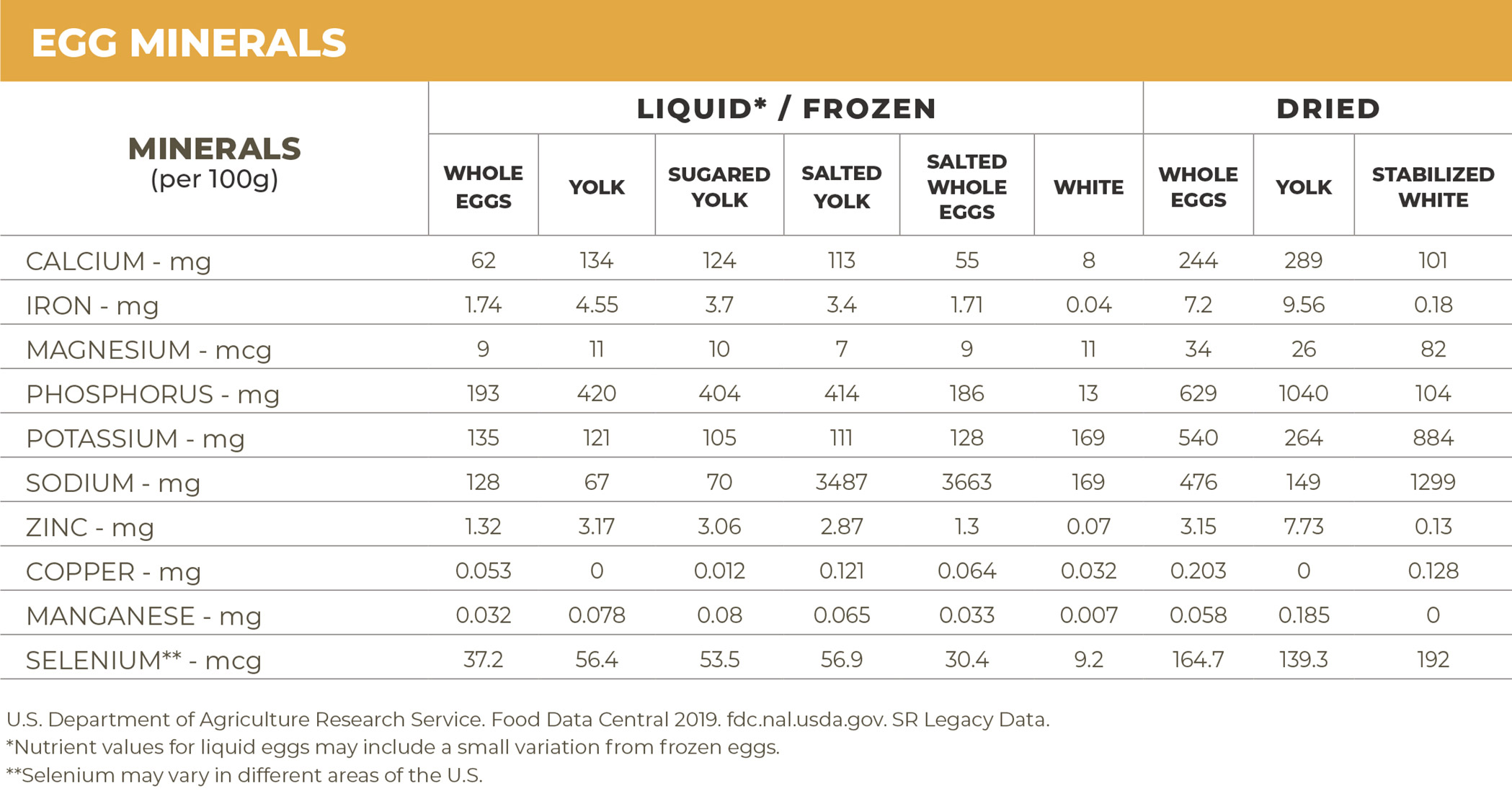
Egg Lipids
FACT: Eggs contain an insignificant amount of trans fat. Similar to some fats and oils, eggs impart a rich texture, mouthfeel, flavor and color to prepared foods.
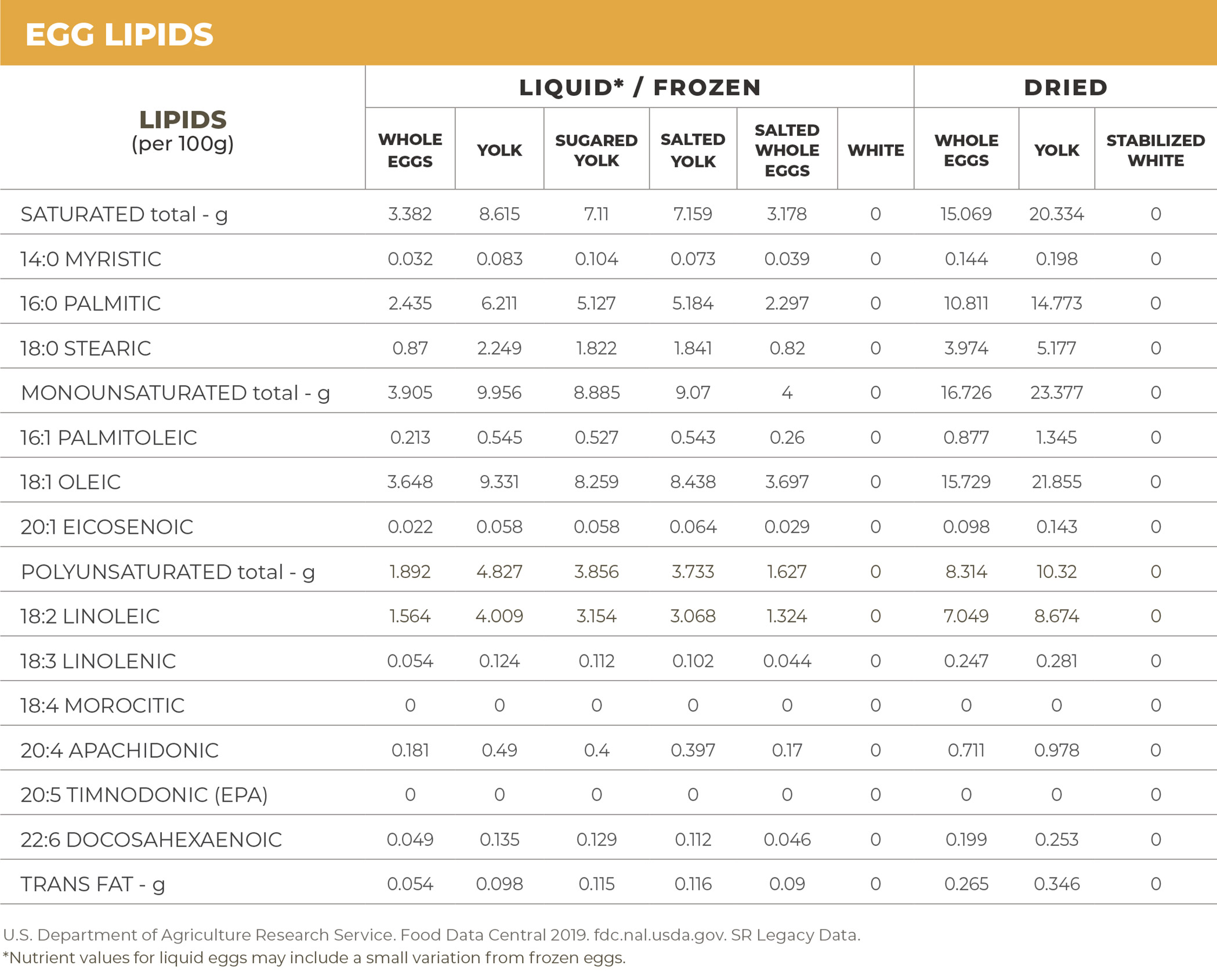
Amino Acids
FACT: Whole eggs and egg whites in particular, are frequently used in product formulations to help create smooth and creamy finished products. In addition to their own ability to aid browning, alkaline eggs can improve browning of acidic products – which ordinarily will not brown – by reducing their acidity.
